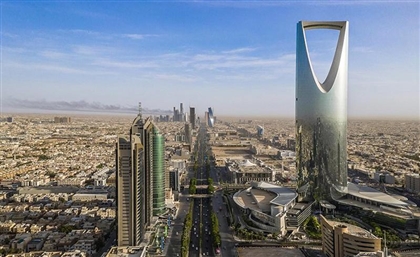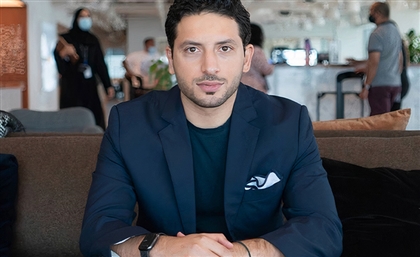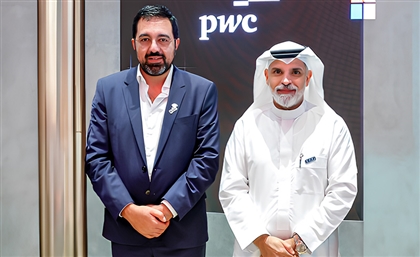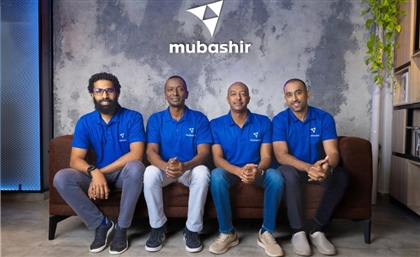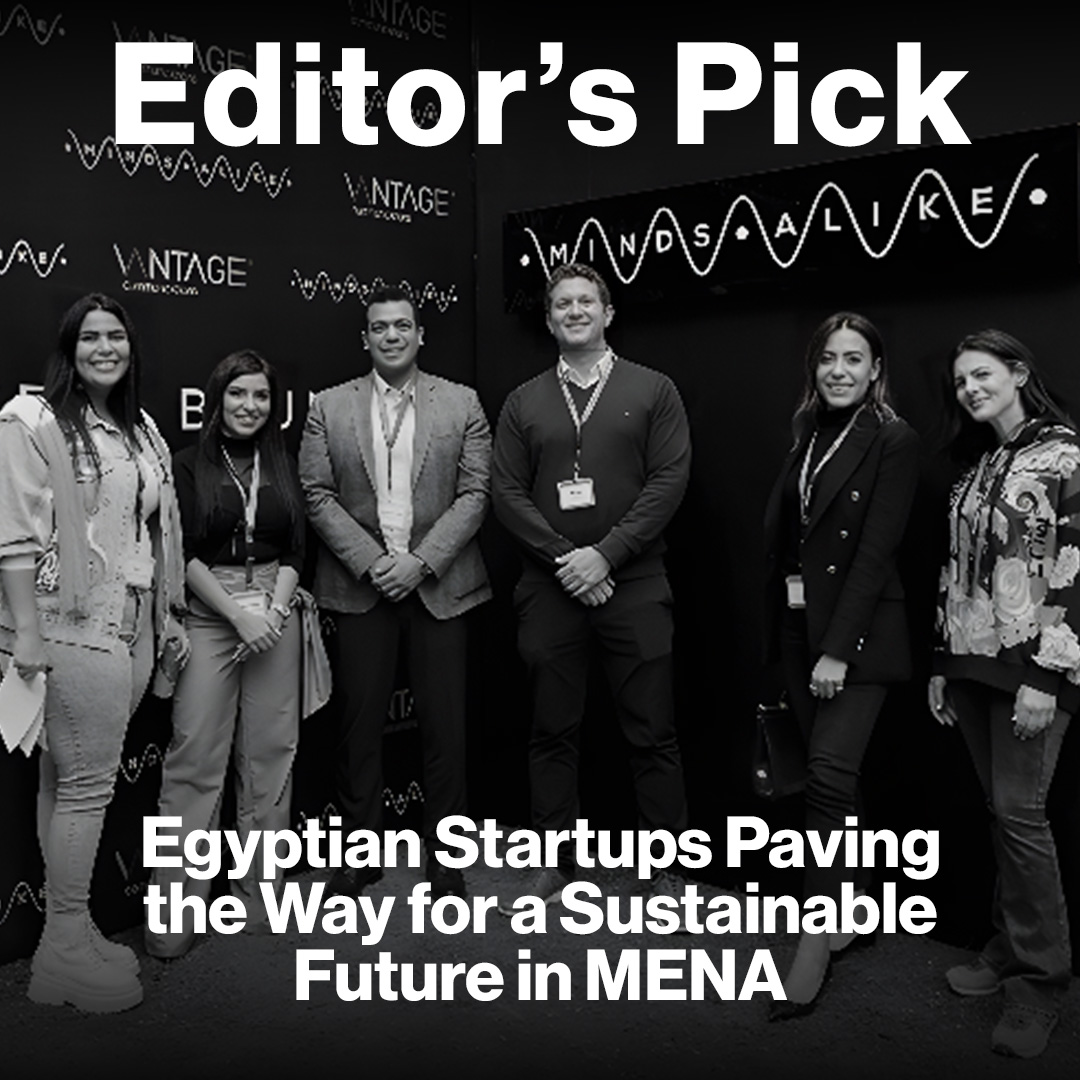25 Under 25: The Young Entrepreneurial Minds Redefining Egypt's Future
Reshuffling business models as old as time, bringing the patient back to the top of the healthcare pyramid, and using blockchain to avoid fraudulent NGOs during times of crisis, Egypt's new generation of entrepreneurs is here to shatter convention and re-imagine entire industries, as is customary.
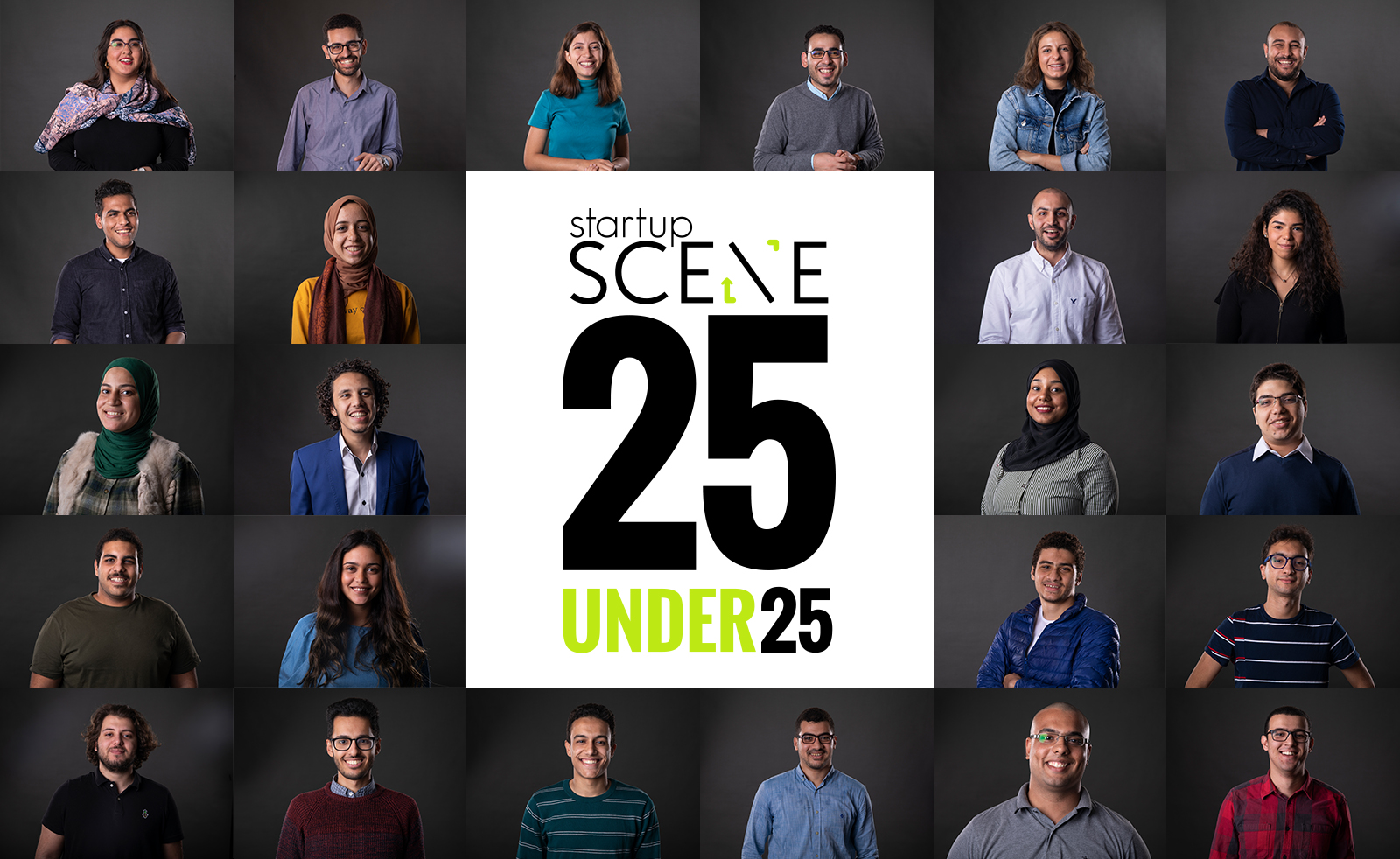
Raging against the routine, breaking the laws of corporate culture, and redefining their once-blurry futures, Egypt's young entrepreneurs are a force to be reckoned with. Solving problems their predecessors have never even encountered, a new wave of passionate, fearless and bright business minds are not only taking control of their own destinies, but reforming Egypt's economic, social, environmental, and cultural landscapes, one startup at a time.
Barely past their formative years, these are the business moguls, game-changers, and thought-leaders of tomorrow. As for today? They're busy creating jobs, re-imagining entire industries and carving out space for their generation in a landscape that's long been resistant to change. This is, after all, a 7,000-year-old economy we're talking about.
While the startups listed on our 2017 edition of 25 Under 25 made over $25 million this year, we've got our fingers crossed for this year's selection. And judging by what they've achieved so far, they might even smash that record. Say hello to 2018's 25 Under 25 - from fresh graduates taken the road less traveled, to undergrads and college dropouts literally giving the status quo a run for its money.
ABO-BAKR ELMASHTOLY, 23, ABDEL-RAHMAN TAHA, 23 // AUTOPARTS 
Before Abo-Bakr ElMashtoly became the CEO and founder of Autoparts, an e-commerce platform for car parts and accessories, he would go to vendors and find it near impossible to get what he he was looking for at reasonable, competitive prices, and more importantly, from trusted sources. "I've had 12 car accidents myself!" he says about what drove him (pun intended) to the automotive world. Knowing the ins-and-outs of the industry from unfortunate first-hand experience, he and Abdelrahman Taha set out to create a unique service that not only sells, but guarantees the authenticity of parts, as well as embedding trusted in-house mechanics into their sales cycle.
Understanding that a large segment of his target market aren’t necessarily internet savvy, the team also leave the online world and hit the ground, partnering with the likes of Uber, and the districts of Madinty and Rehab to talk directly to his potential customers about Autoparts. "We would figure out the prices, and inform the customer, then they go on to physically purchase them instead of buying them online," says ElMashtoly about the biggest challenge in launching an e-commerce platform, and the reason behind their on-ground awareness endeavours.
Autoparts received EGP 500,000 investment from Falak Startups, a government-backed accelerator, after kickstarting with the help of Fekretak Sherketak, an initiative by the Ministry of Investment and International Cooperation. Aiming for $500,000 in their seed round, Autoparts has already grabbed the attention of around 10 regional investors in car-obsessed markets; namely in Kuwait, UAE and Saudi Arabia.
MOSTAFA ASHRAF, 23 // TAQATAK

Taqatak is Egypt’s first startup to create renewable energy solutions that provide free access to energy in public places, cleverly merging solar energy generation with advertising. This simple but effective idea won Mostafa Ashraf a cool EGP 50,000 in investment from Sherketak Fekretak. "Every time someone tells me I won't succeed, that's the fuel that keeps me going," says the eager 23-year-old innovator.
After experimenting with the first solar panel to hit the Egyptian market in 2015, Ashraf's first product is the solar phone charging station, which is put in public spaces and has several secure lockers. Designed to host advertising, the device pays for itself in no time. Always experimenting, Taqatak also embeds sophisticated artificial intelligence-powered technology to collect and analyse user data to give back to their advertisers to be able to create more targeted campaigns.
In addition to selling seven units to the Arab African International Bank and the Ministry of Investments and International Cooperation, Taqatak has ongoing deals with real estate developers, advertising agencies, and telecom companies to roll out more of these stations across the country and, eventually, the world. "We’re working on scaling up not just in Egypt, but to Africa and the Middle East and when we settle in the region, we will begin to venture into Europe and the United States."
MALAK EL-BAHTIMY, 25 // TAYARY 
Malak El-Bahtimy is the co-founder and marketing director of Tayary, an online food delivery app based in Alexandria. They started two years ago in response to a huge demand for a food courier service in the coastal city. Back then, online delivery apps didn’t exist in Alexandria, so restaurants were either very late in delivering or didn’t have a delivery service at all. With Tayary, you can track your order, see where the courier is on the GPS, and you have a live-timer integrated with Google Maps.
“We started literally with nothing,” El-Bahtimy tells us. “We couldn’t even afford to have an office.” Like any real entrepreneur will tell you, it's all about getting your hands dirty and bootstrapping in the startup phase: El-Bahtimy used to handle all the logistics and customer services herself. Now, Tayary has over a hundred employees in Alexandria and plans to move into Cairo in 2019.
DOHA AHMED, 22 // PAYME, ORIANTO, VALLEY 
At just 22, Doha Ahmed's CV reads more like the accomplishments of someone twice her age. While still at university, she is also a teaching assistant, works as the business development and partnerships officer at the staggeringly successful Cairo-based fintech startup, PayMe, and has somehow managed to found two startups in the meantime.
Taking an interest in the beauty field, she started her entrepreneurial endeavors with Orianto, a startup that not only imports cosmetics that aren't formally sold in the Egyptian market, but also educates the customers on how to use the products through powerful content marketing. Endlessly ambitious, Ahmed has since ventured into the Turkish market, setting up Valley - a logistics company that exports products from Turkey to anywhere in the world.
"I love traveling, design, fashion, and seeing new ideas. This opened my eyes to what's trending across the world," she explains about the wisdom and experience she has that's atypical for age. "This made me interested in understanding market research, and from there I could grasp the service sector, especially operations and supply chain management."
Through her work at PayMe, this young go-getter has contributed to the company's blazing success: since launching, the startup has celebrated 9.5 million transactions, 320 contracted companies, and over 20,000 users in record time.
MOHAMED EL-FARRA, 23 // BOOZA WORLD 
Media, in no uncertain terms, is one of the most competitive fields in Egypt. But that didn’t stop Mohamed El Farra from leaning into his passions as an active and popular musician in Cairo's underground music scene, and turning it into profitable business. Launched earlier in 2018, Booza World is multi-pronged media startup that operates on three distinct but overlapping plains: music media buying, radio advertising campaigns, and creative below-the-line advertising.
"If you've seen buses around the city with Total Gas stickers, that's us. If you've seen the World Food Bank campaign on your commute, that's us too. In fact, most of the radio adverts you heard this morning were also made by us," rightfully boasts El Farra. The latter revenue stream is helped in no small part by the fact that this eager 23-year-old also works at a major radio station, NRJ, all while continuing his undergraduate studies.
“Within 30 days of our soft launch we had already worked worked with Total Gas, Town Team Clothing, Nissan Automotive, the World Food Bank, and Icon Development. We made EGP 300,000,” he reveals. El Farra has already caught the eye of some big name potential investors and will kick off 2019 by launching a mobile app that ties into the services Booza World provides.
OMAR, 21, AND MAHMOUD EL-JENDY, 23 // DELTA OIL 
Quite often, the solution to a problem is right in front of us. This is the realisation that led brothers Omar and Mahmoud El-Jendy to founding Delta Oil – a network for collecting used cooking oil from homes to create biodiesel. “The biggest challenge is collecting oil," Omar explains. "Collecting, transporting, and treating it is very expensive. It's usually done business-to-business, but our idea is to make a consumer-to-business model."
Pounding the pavements and knocking on doors, the duo were able to strike a one-of-a-kind deal that makes their startup truly work: "We made agreements with the sales point of subsidised food across the rural suburbs of the Delta, and that's where people can drop off our used oil and redeem cash or credit to used against new purchases of foodstuffs," says Mahmoud. "Since women usually do the cooking and pick up the groceries, our business model is highly dependent on and highly beneficial to females."
As the first startup of its kind to enter the market, Delta Oil has already raised EGP 500,000 from Falak Startups, which the sibling founders plan to invest into marketing and logistics, as well as expanding to other locations.
MAE SAKR, 23 // CHIP ME

At just 23, Mae Sakr has already lived the millennial dream; quitting the corporate rat race, just a year after she started a career as a marketer, she's now the proud baker and business owner behind a brand that got all of Egypt drooling over their Instagram feeds. “I just had to set the normal life aside, and do what I love,” she says about ChipMe, an online bakery that has foodies raving. Starting small and using social media to push her products, she reached her first thousand followers within a week, quickly affirming Sakr's risky decision to leave a stable job and venture into cookies.
“I didn’t want it to be something commercial, as much as I wanted it to be something cozy, closer to home,” she explains about the viral success of the brand, proving that those mere months she spent in marketing left some impact after all. She wants to keep what she calls a ‘fresh element’ and not dilute her brand or business by creating a bond between ChipMe and potential customers through her clever content and no-frills approach.
2019 will see Sakr bootstrapping her operations until she finds the capital and team to sustain an offline business in a physical bakery shop. She’s already making progress; what was once a one-woman-show that saw her taking orders, baking them and delivering them to her customers’ doorsteps with her own car, is now a team complete with two couriers and an assistant baker.
NOUR HARIDY, 20, MUHAMMED ELRAKABAWI, 20 // LAMARKAZ
 With blockchain creating buzz, and often confusion, around the world, it comes as something of a surprise that the first company dealing directly with the complex technology in Egypt isn't a national bank nor some tech conglomerate, but a startup by two young men barely past their teenage years.
With blockchain creating buzz, and often confusion, around the world, it comes as something of a surprise that the first company dealing directly with the complex technology in Egypt isn't a national bank nor some tech conglomerate, but a startup by two young men barely past their teenage years.
"I basically have no academic achievements!" chuckles Nour Haridy, though his decision to not go to university is no laughing matter for most Egyptians. The groundbreaking nature of LaMarkaz, however, might inspire others to seek success outside of the status quo. Though he enrolled in college, Muhammed ElRakabawi dropped out in his second year to focus on the business. "I chose work," he says simply. "There are a lot more opportunities out here than in college. A lot more."
Launched in the summer of 2017, the startup has been driven by the aim of helping accelerate blockchain adoption by solving problems such as scalability through working on whitepapers and experimenting with prototype products. One of its first products is Dcourt, a decentralised people's court where people can have their conflicts resolved without a central judge or jury. More recently, the duo launched The Playground, an online platform which allows startups to register and tokenise their services.
TOQA MAGDI, 20, SHEROUK MAMDOUH, 21, EMAN AHMED, 21 // ABTAKERLI 
“We found that most of the people around us were from a low-income background,” says Toqa Magdi of the motivation behind educational startup Abtakerli, which she founded with fellow college students, Sherouk Mamdouh and Eman Ahmed. “We felt compelled to help the women and girls around that wanted to find job opportunities.” And that’s exactly what they set out to do by offering underprivileged women workshops in handicrafts, during which they also teach them how to market and handle sales, in addition to linking them to vendors and retailers.
Abtakerli tours the underprivileged communities in the Egyptian capital, and it will soon be taking its workshops across the boundaries of Cairo to expand its reach. Other than the rotational workshops at Cairo’s informal housing districts, there are others that are based out of AlMaqarr, a prominent co-working space in the capital, which are for a nominal fee that Abtakerli uses to pay for the materials used in the class. "We came together to create Abtakerli based on three goals: spreading crafts, encouraging innovation and creating an infrastructure for these women to be business owners," says Magdi.
TAREQ MANDOUR, 24 // MAZBOOT 
Right after graduating with a degree in computer science, Tareq Mandour launched his startup, Mazboot; a health-tech app helping diabetic patients to keep track of their sugar levels and analyse their progress on a regular basis. "My colleague, Ahmed, had just graduated as a doctor, and at the same time his father was diagnosed with diabetes. We started researching on how to turn medical advice for diabetic patients into a technological solution to help them in their daily lives," explains Mandour.
With their prototype, Mazboot has reached almost 3,000 active users, with more than 200 doctors on board. "Our business works on the free-mium model. The app is free to download but there are premium features which are paid for, such as home visits and open line of communication to a personal diabetes coach," says the young entrepreneur.
As is commonly known, there two types of diabetes, type 1 and 2. Mazboot focuses on the latter which is often more manageable for the patient but presented a very specific challenge for the app creators. “Type 2 mostly affects older demographics who have issues in adopting technology. We work really hard to overcome this through creating a simple UI that makes it easier for the non-tech savvy.” With grants and investments reaching almost $60,000, Mazboot is now on a mission to reach 20,000 paying customers in 2019.
NADA ZAHER, 24 // PASSPORT

Though she spent much of her youth playing tennis, Nada Zaher never thought that her love for the sport would afford her an opportunity few get: to attend an elite university in the US. After receiving a sports scholarship to Columbia University, Zaher returned to Egypt determined to make it easier for others to take advantage of their sporting pursuits for their academic ambitions – which is how PasSport came to be.
“I like to think of it as LinkedIn but for athletes and coaches. So athletes sign up, they pick a sport and they fill out a profile with their academic information, athletic videos, their transcripts, their SAT scores, etc,” she says. From there, college coaches can peruse profiles and take their pick from young, talented Egyptians – and in the future, athletes from across the Middle East and Africa, too. Though the site is in beta at the moment, Zaher has been part of a Falak Startups accelerator program and intends to launch the full website in January.
MOHAMED EL-SHAA'ER, 25 // CIZLO 
About a year and a half ago, the painful devaluation of the Egyptian pound inspired Mohamed El-Sha'er, who was then 24, to launch one of Egypt's first thrift e-shops. El Sha’er’s online platform, Cizlo, offers Egyptians the chance to sell and trade everything from clothing, to electronics, to furniture, home accessories and more. “We realised that everyone has a lot of money in the form of clothes, products, and stuff that they stopped using long ago," explains El-Sha'er. "So we thought, why not find an easier way to get rid of these things and get money out of it?"
Cizlo’s process is simple and straightforward; they pick up the unwanted goods and even photograph them professionally for the website, before storing them in a warehouse and taking care of logistics when a sale is made. This simple, yet effective idea won Cizlo a seat at the AUC Venture Lab incubation programme, before being selected as one of the top 100 companies to showcase their business at the Arab Youth Startup Market Place in Dubai earlier this year.
YOUSSEF NADER, 23 // PATRONELLE 
There are countless Egyptians who don't fit the fashion industry's 'standardised sizes', and that's where Youssef Nader found a massive opportunity to co-launch Patronelle; a website and app that supplies made-to-measure fashion, using technology to create apparel for Egyptians that's exactly to their measurements.
“Not all people are of only small, medium, and large sizes. In fact, 64 percent of the population don’t fit in standardised sizes," explains Nader. With Patronelle, the customer gets involved in choosing the designs and fabrics, giving them much more freedom of choice, potentially revolutionising how we shop for clothes. "Fashion is a tough industry, and it's often said that 90% of fashion startups fail. But there are 10% who make it, and with perseverance, we’ll get there."
AHMED GAMAL, 23 // ELEGATE

Ordering food online can often rapidly unravel into an existential nightmare. And that's where online food ordering Facebook chatbots - like local startup Elegate - come in.
Co-founder and CTO of Elegate, Ahmed Gamal, worked for years as a programmer on projects he knew were doomed to fail. "I would work on projects that I knew would go nowhere and I could never say anything because it wasn't my company and this was work for a client," he recalls. "Eventually I decided I was done with that; I decided I would start a business and do all the programming, not just work as a developer on a failing project."
Founded only four months ago, Elegate has already nabbed the Orange Startup Cup in November, and was selected for Falak Startup’s second cycle. So far, the team have sealed deals with around 10 restaurants and have already launched chatbots on the Facebook accounts of four restaurants, including El Torr and Attaturk, giving their customers the luxury to place and track their orders without going through a third-party app.
HUSSIEN ABDEL-AAL, 21, RAMADAN NASR, 23, AHMED ABDEL-AZIZ, 22, OMAR HANDOU', 21 // SURV-NET

When you hear the words 'supply chain management platform based on blockchain and AI' your mind might instantly jump to Amazon's giant warehouse and how they logistically manage next day delivery on those shoes you just had to have right away. But Egyptian NGO Surv-Net - a supply-chain-management platform based on blockchain and AI - actually aims to solve an issue that many people didn’t even know existed. "It helps NGOs save people's lives in times of crisis," says co-founder Ahmed Abdel-Aziz.
For most NGOs, tracking and tracing aid isn’t easy and it’s almost impossible to follow up and ensure that said aid is actually getting to the people its intended for. What Surv-Net proposes as software is to support humanitarian organisations in improving their reliability and efficiency as well as their speed in responding to crisis; it would have access to the amount of resources each NGO has, and in turn will send a notice with the certain amount they need to send to ensure integration and punctuality.
Despite the fact that all four founders are still university students, they have managed to create something potentially great, which could have a massive global impact on humanitarianism - something that IBM recognised in awarding them the first prize at the Egyptian leg of their 'Call for Code' Competition.
ANDREW SAAD, 24 // BYPA-SS 
Three years ago while interning at a hospital, medicial student Andrew Saad had an elderly patient come in complaining about stomach aches, clueless about any prior health issues she had - specifically those concerning her liver. “The routine is to administer three painkiller shots, put the patient under observation, and then she may leave,” he explains. “However, one of the shots, if she did indeed have liver problems, would have been fatal.”
That incident prompted his idea for Bypa-ss, a tech solution for both patients and doctors to track medical records through smart cards that patients keep with them at all times. Doctors not only run a huge risk of causing additional damage to a new patient if they don't know their history, but knowledge of their patient's medical history can also be tremendously beneficial in helping diagnose the issue faster. "Medical records should always be with the patient - not at hospitals or clinics, but with the patient. So wherever they go, they have it on them."
Together with his co-founder Mahmoud Ghobashi, the two are currently working on a minimum viable product to ensure more efficient diagnosis and treatment. Currently in the post-prototype phase, they are completing an incubation cycle with Falak Startups, while operating in Shebin El-Kom, Menoufeya, with over 90 care providers in the network. If their product comes to fruition, it could potentially revamp a dated medical landscape, not only in Egypt, but well beyond that.
FADILA KHALED, 18 // TEEN TIMES

At the age of 16, Fadila Khaled applied to every online magazine and digital platform she could think of, and they all replied to her with the same response: You’re good, but you’re only 16 and that’s not old enough.
Now she’s an 18-year-old founder and editor-in-chief of Teen Times, a radical digital publication that seeks to not just offer representation for Gen Z but to also wreck the social and cultural norms inherited from an outdated generation.
“I started it because I was angry,” she says simply. "Rejection hurts." Rather than mire in her own failure, Khaled was fuelled by rage to carve out a space for herself, a space where she didn't require someone else's approval or validation. "It made me want to get up and do something, and make all the people who said 'no' regret it."
Running Teen Times since August 2017, Khaled has put together a team of 22 writers across Cairo, Alexandria, and Kuwait City, functioning on a remote work model. “This age is all about content; if you find people who are good enough, young enough, and powerful enough to create that content for you, then regardless of money or resources, you’re going to make it.” Billed as a magazine 'by teenagers, for teenagers' Khaled dares anyone to underestimate her generation's power and she aims to grow the publication by reaching out to more writers her own age and bringing them on board.
"Teen Times was born out of my own countless rejections and failures, so I just wanted to create something that is representative of my generation, because I think a lot of people need to step down," she says with youthful zeal. "Your time’s up. This is the digital age. We were born in it, we were raised in it, and this is our time."
Photos by @MO4Network's #MO4Productions.
Photographer: Muhammed Mortada.
Videographer: Amr Ihab.
Trending This Month
-
Apr 05, 2024




